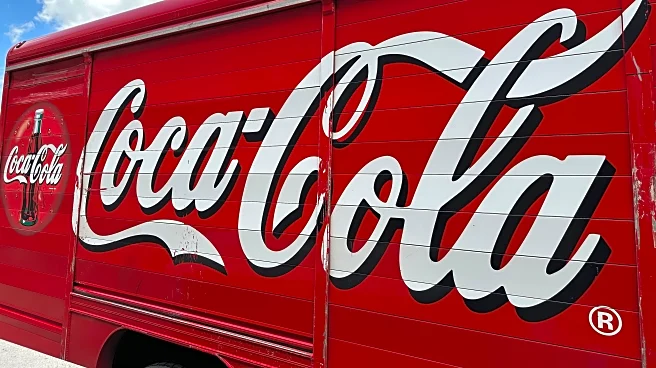What's Happening?
Retailers in the United States are facing significant challenges due to evolving tariff policies under President Trump's administration. These tariffs have prompted companies to rethink their sourcing strategies, increase prices, and adjust inventory orders earlier than usual. While some companies like Walmart and athletics brand On have managed to thrive, others such as Under Armour and Funko are struggling with the geopolitical shifts. The impact of tariffs is expected to intensify in the second half of the year, affecting consumer prices and holiday sales. Walmart CEO Doug McMillon noted that replenishing inventory at post-tariff price levels has led to weekly cost increases, which are anticipated to continue into the third and fourth quarters. This situation sets the stage for a challenging holiday season, with rising toy prices and consumers potentially cutting back on essentials.
Why It's Important?
The tariff policies are having a profound impact on the retail industry, influencing consumer behavior and economic dynamics. As tariffs lead to higher import costs, retailers are forced to pass these costs onto consumers, which could dampen holiday spending. The toy sector, heavily reliant on imports from China, is particularly vulnerable, with major players like Mattel forecasting significant financial impacts. The broader economic implications include slowing wage gains and a cooling job market, contributing to decreased consumer sentiment. Retailers are employing strategies such as diversifying supply chains and utilizing AI-enabled tools to mitigate these challenges, but the overall economic strain remains a concern.
What's Next?
Retailers are likely to continue adjusting their strategies to cope with the tariff impacts. Companies like Mattel and Academy Sports and Outdoors are diversifying their supply chains to reduce reliance on China. As the holiday season approaches, retailers are pushing through orders early to avoid further tariff-related disruptions. The use of AI-enabled tools is expected to increase, helping retailers navigate changing trade policies. However, the long-term effects of tariffs on consumer spending and retail profitability remain uncertain, with potential adjustments in pricing and sourcing strategies continuing to evolve.
Beyond the Headlines
The tariff situation under President Trump highlights broader geopolitical tensions and their impact on global trade. The reliance on imports from China underscores the need for diversified supply chains and strategic planning in the face of unpredictable trade policies. The use of AI in retail operations reflects a shift towards technology-driven solutions to address complex economic challenges. These developments may lead to long-term changes in how retailers manage inventory, pricing, and consumer engagement, potentially reshaping the industry landscape.










